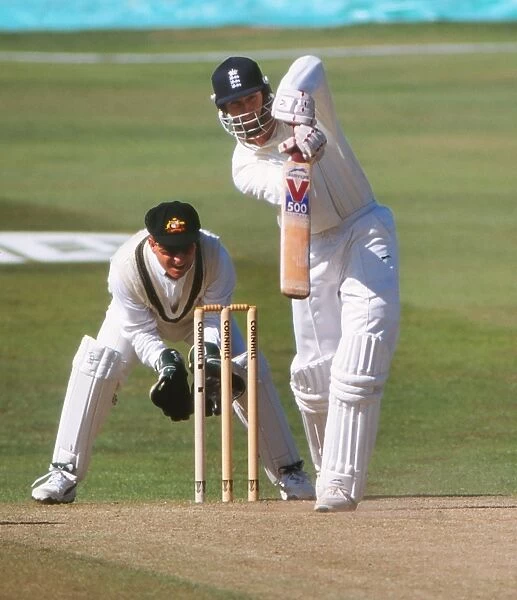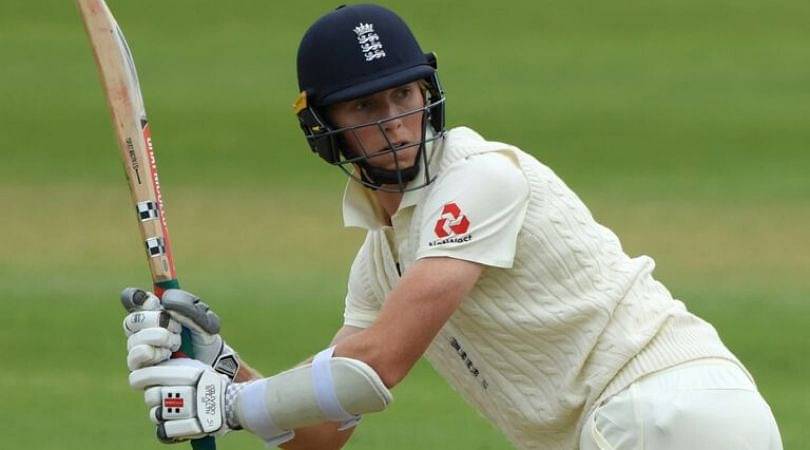@blockerdave @Dale88 - So I've had a look through, and I'm honestly a bit confused why the selectors of the time had such a hard time selecting teams. I've come up with a sort of extended squad of players that would pretty much have done a job for the entire decade just fine.
View attachment 241334
It's obviously not a perfect squad - going into a Test with one spinner and that spinner being Robert Croft is genuinely terrifying - but it's pretty much the best use of resources that England had available at the time. It's also one that doesn't resemble real-life England in the slightest. There's no Ian Salisbury, for example. And really, if the cookie had crumbled this way, would 90s England have produced such magical moments as Richard Blakey trying to bat against Anil Kumble? And am I just leaning on hindsight a lot or were the selectors really that incompetent at the time? I know for instance that given the opportunity, Gus Fraser would likely have carried on beyond 1998 and done so perfectly well.Player|Span
Batsmen

Michael Atherton|1990-2000

Graham Gooch|1990-1995

Alec Stewart|1990-2000

Robin Smith|1990-1995

David Gower|1990-1992

Graeme Hick|1990-2000

Allan Lamb|1990-1992

Nasser Hussain|1993-2000

Mark Ramprakash|1993-2000

Nick Knight|1995-1997

Graeme Thorpe|1995-2000

Mark Butcher|1998-2000
Keepers

Jack Russell|1990-2000

Paul Nixon|1990-1998

Chris Read|1999-2000
All-Rounders

Chris Lewis|1990-1992

Ian Botham|1990-1992

Craig White|1994-2000*

Paul Weekes|1995-2000
Seamers

Angus Fraser|1990-1998*

Phillip DeFreitas|1990-1994

Devon Malcolm|1990-1996

Neil Mallender|1990-1992

Gladstone Small|1990-1991

Martin Bicknell|1992-2000

Darren Gough|1993-2000

Andy Caddick|1993-2000

Dean Headley|1994-1999

Dominic Cork|1995-2000

Alan Mullally|1997-2000

Chris Silverwood|1999-2000

Alex Tudor|2000-2000
Spinners

John Emburey|1990-1993

Phil Tufnell|1990-2000

Eddie Hemmings|1990-1991

Robert Croft|1992-2000
I also completely forgot Craig White existed in the spreadsheet but I'm including him here.
The general approach would be to select a team that looked something like this:
1990

Michael Atherton

Graham Gooch

Alec Stewart

Robin Smith

David Gower

Jack Russell

Chris Lewis

Phillip DeFreitas

Angus Fraser

Phil Tufnell

Devon Malcolm
1993

Michael Atherton

Graham Gooch

Alec Stewart

Robin Smith

Graeme Hick

Jack Russell

John Emburey

Phillip DeFreitas

Darren Gough

Angus Fraser

Devon Malcolm
1996

Michael Atherton

Alec Stewart

Nasser Hussain

Graeme Hick

Graham Thorpe

Jack Russell

Robert Croft

Andy Caddick

Darren Gough

Angus Fraser

Devon Malcolm
1999

Michael Atherton

Alec Stewart

Nasser Hussain

Graeme Hick

Graham Thorpe

Jack Russell

Robert Croft

Dominic Cork

Andy Caddick

Darren Gough

Dean Headley
There are obviously some terrifying things about that side still, including Jack Russell, Test number 6 as well as Robert Croft, Test number 7 but those are the kind of sacrifices that I made to pick a team with the best chance of winning. Interested in what you guys think.
Often wondered about this since I started to notice just how random the selection seemed to be. And looking at it written like this, the selection policy makes even less sense.

























